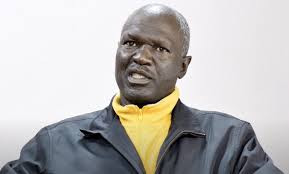By Raymond Millagre Langa THE artist subscribes to the role of the leader or “influencer” as per the now common dictum. It is in this view that we have to understand that this leadership or influencer role from the artist can be either progressive or retrogressive. But the art of leadership is something that is enmeshed in the application of leadership skills.
The application of artistic skills and having the natural creative aura can be of help in the enhancement of what can be termed artistic leadership. For example, many artists; especially musicians seek the image of being a “celebrity”. Being a celebrity means being a role model, which becomes tantamount to leadership, and hence the need to lead one’s followers in the right path.
However, nowadays the reality is that artists are more concerned about themselves, and seek likes on social media through their posts instead of exhibiting leadership. Social media posts of influencers and artists need to build and develop the audience and have an edutainment effect. Most of the posts we see do entertain, but lack the educative aspect.
We live in a generation where a majority of the youth in the country are in need of guidance and leadership through awareness and conscientisation on many of the salient issues of life such as the importance of being focused in life and being aware of their everyday realities.
Artistic leadership is based on the precepts of innovation where the power of creativity is used in bringing about change which is actualised through communication and application. The artist as a leader thus engages the audience, giving them insight, and with creativity and boldness in order to challenge the prevailing status quo. Artivism, therefore, is where the artist takes the role of the activist and the role of the “edutainer” to teach society on issues that can develop them.
The manifest of the artist as a leader is in how they are passionate about their vision and in the process, are able to take what they do very personally as they push their vision forward.
Keep Reading
- Chamisa under fire over US$120K donation
- Mavhunga puts DeMbare into Chibuku quarterfinals
- Pension funds bet on Cabora Bassa oilfields
- Councils defy govt fire tender directive
Not every leader is a natural artist, and not every artist is a leader. Nevertheless, every leader can be an artist as the “art” of leadership is the creating of an experience from nothing. The art of leadership has its foundation on strategic thinking which relates to planning, crisis management and having a clear artistic vision.
This pertains to the ability to curate a good artistic profile, and good artistic portfolio or compilation of artistic work. For musicians it means the readiness to face challenges from the crowd. This has to be also shown to the wider environment through grooming other upcoming artists and enabling them with skills for self-capacitation. An artist who does that is a leader.
Artists that are leaders inspire and influence feelings. The artist has to help the wider society, especially those in vulnerable situations so that they are able to face their challenges. Being an artist means that one is confidence, and that confidence must be translated to good leadership.
I always remember the advice of my grandmother who always said good leadership overcomes tides. Therefore, leadership is about re-evaluating whatever ideas and programmes you do, events and even functions. Leadership is about looking for new angles and approaches in order to come up with the best results.
Artists as leaders must never give up on their projects as it takes a lot of creativity to produce them. There might be ups and downs as well as artistic criticism and positive feedback, but all this is meant to further develop and artist.
For artists it is imperative to know that there is never a full plate as there is no switch off for the creative process. Artists have to strive for more, and always have a positive influence to the society with the little gifts of art that they have. The presence of an artist in any community stimulates ideas and new passions.
The artist needs to encourage new ideas that expose art synergies that edutain to the wider community. For example, with Indebo Edutainment Trust we introduced “stay at home sessions” and “the Chikondi synergies”, programmes, which develop the capacities of future and present community leaders, and inspire inter-generational dialogue that plays a role in community development.
Fusing leadership with being an artist is a great trait. Artists eat, sleep and drink art. They carve out time in their day to market their art. The creative artistic leader therefore needs strong work ethics, and the ability to manage themselves and their creative energy and resources in order to be exemplary.
Being a creative leader means facing situations one may not enjoy without a lot of complaints or resentment. A creative leader also understands the importance of resilience. They understand that success can never come overnight, but like good wine it takes time to mature. The creative leader understands that making mistakes is part of the learning process, and that one needs to try until they get it right.
Finally, the creative leader spends time with people who are 100% supportive of their artistic career. The artistic leader limits time with people who are negative about creative processes. If the wider community is supportive of the artist, there is a higher likelihood that they will succeed and also contribute to the development of the community as leaders. The creative artists should never allow unsupportive people who are full of negativity to be an obstacle to their success.
- Raymond Millagre Langa is a musician, poet, writer, orator and founder of Indebo Edutainment Trust. Follow Raymond Millagre Langa on Millagre Ray on Facebook and Instagram @Millagre Ray L, and email indeboedutainmenttrust@gamail.com and millagrepapaito@gmail.co





